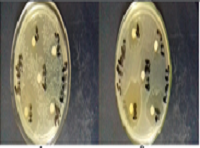Ibrahim Siddig Hamid Humedia
UMST, Sudan
Biography
Ibrahim Siddig Hamid has his expertise in evaluation and passion in research, search and discovery of natural drugs from plant origin. His open and contextual evaluation model based on responsive constructivists creates new drugs for improving and treating of infectious diseases.
Abstract
Statement of the Problem: Bacillary dysentery which is caused by one or more types of Shigella species, highly prevalent in hot countries with poor sanitation like Sudan especially in children is a potentially serious disorder if left untreated. It can lead to dehydration in children or liver abscess if it is spread from intestine to the liver stream. Options of treating Shigellosis with antimicrobials are becoming limited because of globally emerging antimicrobial resistance and the long use of these synthetic drugs causing many side effects. Therefore, the search for effective and safer antimicrobial agents from plants has become an area of interest in active research. The purpose of this study is to investigate the antimicrobial activity of the ethanol extracts of Peganum harmala and Trachyspermum ammi against isolated Shigella flexneri and Shigella dysenteriae causing bacillary dysentery.
Methodology: T. ammi and P. harmala were extracted by 96% ethanol using Soxhlet apparatus. The antimicrobial activity of the extracts was investigated according to the disc diffusion method and the minimum inhibitory concentrations of the extracts were determined.
Findings: All tested bacteria (Shigella flexneri and Shigella dysenteriae) were found to be sensitive against T. ammi seed extracts, while the same bacteria were resistant for amoxicillin and amoxicillin + clavulanic acid and insensitive for P. harmala. The tested bacteria were also sensitive to gentamycin 5 mg/ml, but it has a lower inhibition zone than that of T. ammi 100 mg/ml.
Conclusion & Significance: T. ammi ethanolic extract possessed antimicrobial activity as stated in literature.
Recommendations: Further investigations should be carried out to find the bioactive compounds for developing new antibiotic

